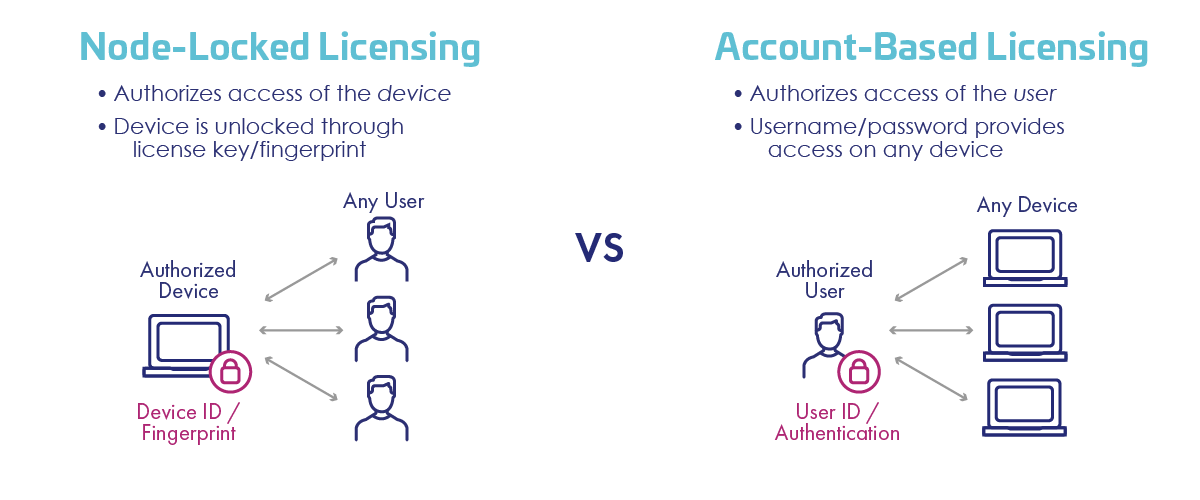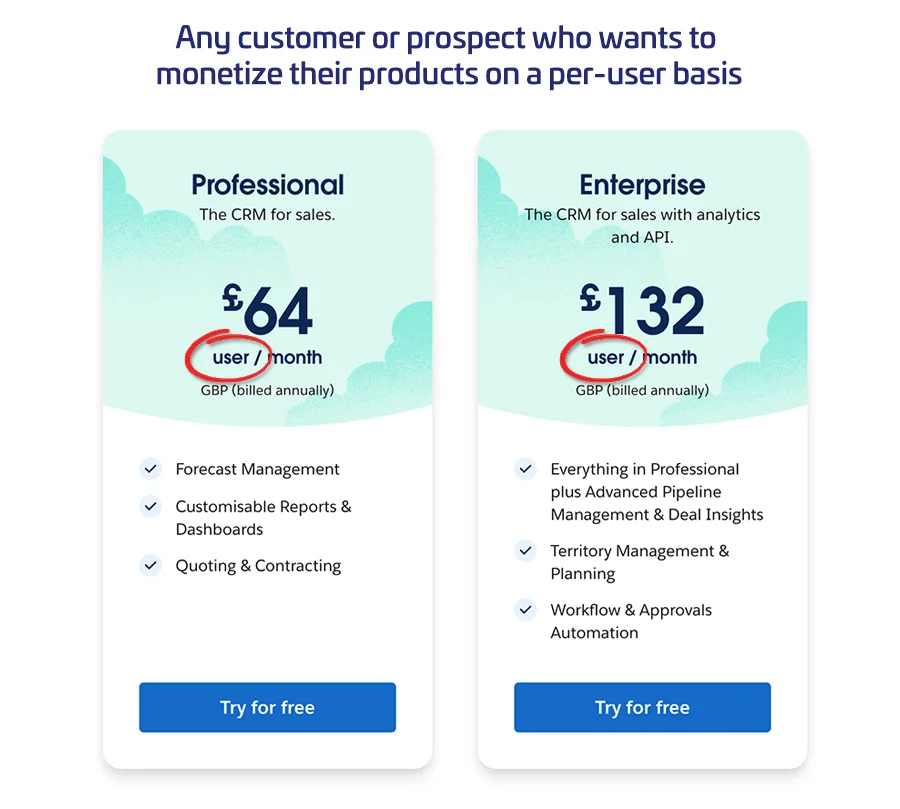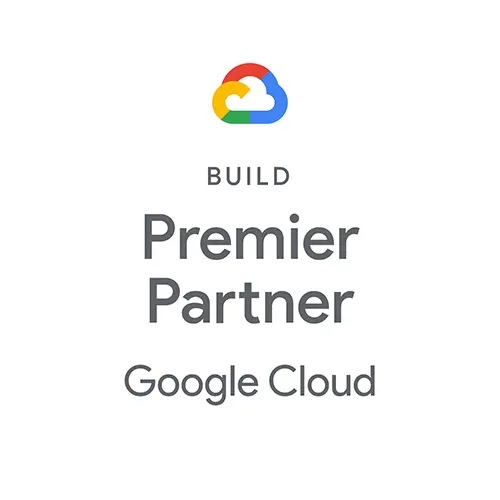
Darim Rahmatallah
Senior Product Manager
What is Account-Based Licensing?
Account-based licensing – sometimes called user-based licensing – is a licensing method where users are granted access to the software by entering their username and password into the platform. It’s a user-friendly approach where Username/Password login replaces node-locked license keys.
Under the hood, this method assigns software licenses to individual end user accounts rather than binding them to specific device fingerprints.

Node-Locked vs Account-Based Licensing
In node-locked licensing, access to the devices is unlocked through a license key. When the software on the device is unlocked, anyone can use the software on that device.
With account-based licensing, access to the software is unlocked through a username/password instead. This means that any user with the correct credentials can access the software on any device.
This approach is familiar in mobile and SaaS applications. With Sentinel user-based licensing, vendors can create the same intuitive flow no matter where the software is running.
Benefits of Account-Based Licensing
Customer/User Benefits
Intuitive log-In
For most users, logging in with a username and password is the most intuitive way to access software. It’s an experience that’s super familiar from B2C platforms, like Netflix or mobile banking apps, and from SaaS workplace applications.
With account-based licensing, users don’t have to juggle multiple licenses or remember activation keys. Instead, the user puts in their email and password, and they can access the solution from any device.
Ease of Access in the Field or Remotely
With account-based licensing, users access an instance of software set up for them, no matter what device they are logging in from. Not only is it easy for users to log in, but account-based licensing makes it easy to access the software they need on any device. This is especially helpful in scenarios with remote and field work.
Simpler Workforce Management for IT Teams
Often, the process of distributing purchased license keys among employees and keeping track of users is cumbersome and prone to error. Licenses are locked to devices, so moving, reallocating, changing and upgrading licenses can be complex, multi-step processes. The more licenses corporate IT teams have to distribute and manage, the more challenging it becomes. This comes up a lot for companies that are growing quickly or have frequent changes in team composition.
Vendor Benefits
Improve Customer Experience
Investing in customer experience benefits the software vendor as much as it does the user. Today's software buyers want products that are easy to use and access, and they will look for solutions that cause as little friction as possible. In a crowded market, you can set your offering apart by providing your customers with hassle-free distribution and access. Through account-based licenses, you can boost user satisfaction, encourage loyalty, and elevate your product above competitors.
Eliminate The Challenges of Licensing and Virtualization
If your company wants the security of software licensing, but you need to give your customers the freedom to deploy in Docker or other virtual environments, account-based licensing is a strong solution. Account-based licensing allows you to give your customers a consistent way to purchase, deploy, and access their software — irrespective of where and how the user will deploy. A Docker container just becomes another environment for your customers to use, and you get the security of licensing that is attached to the user, not the environment.
Jump on the Price Per-User Bandwagon
User-based pricing is a hot topic, because it offers a fresh perspective on monetization. It creates a predictable revenue stream for vendors, as they can estimate revenue based on the number of users. It also allows for scalability, as vendors can easily adjust pricing based on the number of users, making it suitable for businesses of all sizes.
The challenge is with a traditional device-based approach to licensing, you can’t really roll out this pricing model because you are still counting devices and hardware, not users. Once you can easily roll your licensing to user-based, this strategy becomes way easier to implement.
Account-based licensing makes it easier for any company in any industry to implement usage-based pricing.

Example of User-Based Licensing Model
Other options besides Account-Based Licensing
While account-based licensing offers benefits tailored to dynamic and mobile workforces, it’s not the sole option available. It can therefore easily
co-exist alongside licensing, like through license keys, serial numbers, or node-locking.
To learn more about licensing models, types, and distribution methodologies supported by Thales, check out our software licensing guide.
If you are looking to create a better customer experience with your licensing capabilities, read more about how to use licensing to drive happier customers and higher revenue here.


